Michael Kinsella, Liverpool's bright young thing, giving back to football after career ended in drugs and prison
Once of Liverpool Schoolboys, then of Tranmere Rovers, before finding himself in HM Prison Rye Hill, Michael Kinsella is now trying to stop others throwing away a career like he did his own
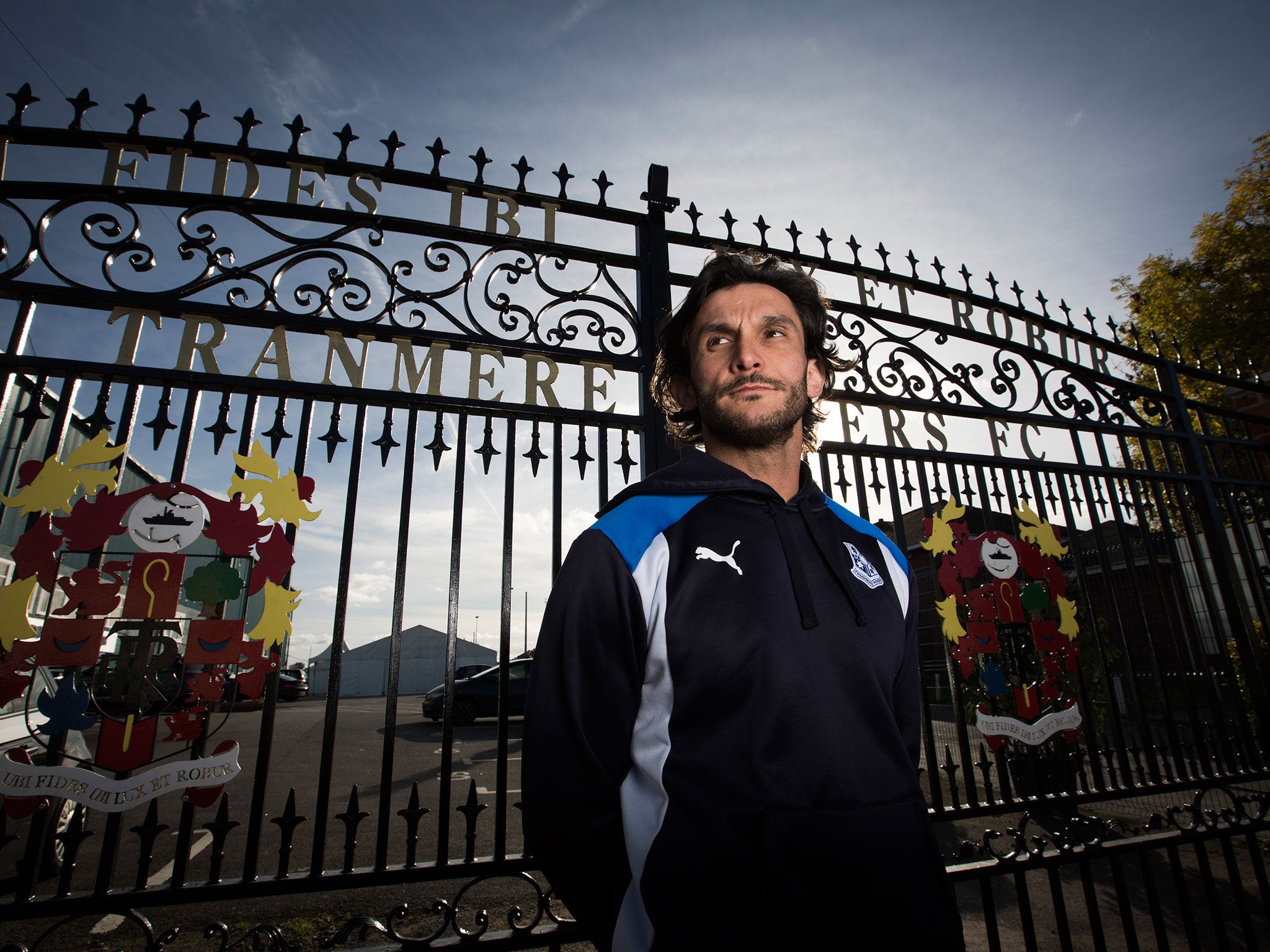
Your support helps us to tell the story
From reproductive rights to climate change to Big Tech, The Independent is on the ground when the story is developing. Whether it's investigating the financials of Elon Musk's pro-Trump PAC or producing our latest documentary, 'The A Word', which shines a light on the American women fighting for reproductive rights, we know how important it is to parse out the facts from the messaging.
At such a critical moment in US history, we need reporters on the ground. Your donation allows us to keep sending journalists to speak to both sides of the story.
The Independent is trusted by Americans across the entire political spectrum. And unlike many other quality news outlets, we choose not to lock Americans out of our reporting and analysis with paywalls. We believe quality journalism should be available to everyone, paid for by those who can afford it.
Your support makes all the difference.Michael Kinsella may be sitting in the café at the Tranmere Rovers recreation centre but right now his mind is elsewhere: back in Rye Hill prison in Northamptonshire at the precise moment he decided to turn his life around.
“I was 31 and sat on my own in a cell,” he remembers. “I just came round and thought, ‘Everything I ever could have been is gone forever’. I’d been in jail four times. It is a waste of life.”
That was 2008. A year earlier he had received a ten-year prison sentence for his involvement with a Merseyside drugs ring. In jail there was no shortage of time to dwell on the wrong paths taken since his days as a promising young goalkeeper on the Merseyside football scene who had spells training with Liverpool, Bury and, in his late teens, Tranmere. “It’s shoulda, coulda, woulda – I am one of them,” he says. “You get a chance and if you don’t put your mind to it, you fall by the wayside quick.”
His fall was more spectacular than most but today, in the busy recreation centre behind the Kop Stand at Prenton Park, he sits in his navy blue Tranmere tracksuit talking with passion about a new life focused on using football to help young men find a purpose – and, he hopes, the right path.
Kinsella, now 39, is the driving force behind the football development programme now in its second year at the Birkenhead club, a scheme which combines further education with football for a group of 60 school leavers, aged 16 to 18.
It has the backing of Mark Palios, the former chief executive of the Football Association who is owner of Tranmere, and who describes Kinsella – officially titled player development academy manager – as a “Pied Piper” for youngsters requiring some direction in their lives. “He never made it, he dropped out,” says Palios. “It’s a big issue in the game. How many people drop out and are lost to society? He was a drug dealer and got education when he was inside and he’s now like the Pied Piper.”
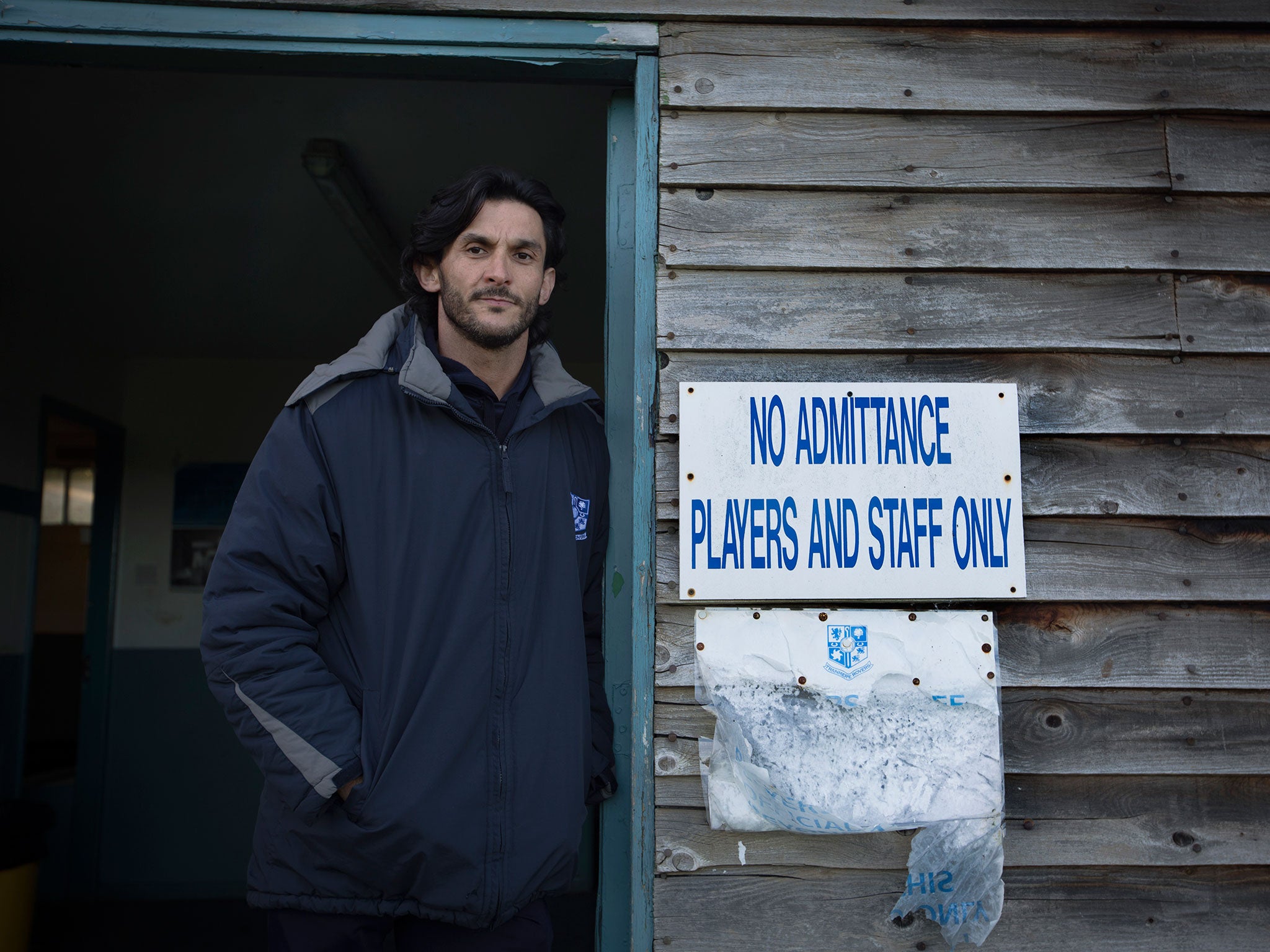
Tranmere may be in their second season as a National League club but Kinsella’s efforts underline their presence as a force for good in the local community – recognised with Kinsella’s shortlisting for the Unsung Hero award at last week’s Northwest Football Awards.
Of his Liverpool Schoolboys team, six went to prison and only two had sustained careers in the game
The youngsters at Tranmere combine studying for BTECs in Sport or Construction with coaching sessions and a weekly match. Some do part-time jobs around the club at the same time. Their coaching comes from former Tranmere midfielder Kenny Irons and Kinsella’s younger brother Gerard, who provides his own cautionary tale as a one-time Everton academy prospect whose career stalled in the face of a serious shoulder injury. Leading the teaching is Michael Wilde, who once played for Total Network Solutions in a Champions League qualifier against Liverpool.
Next year they will move to Tranmere’s soon-to-open Solar Campus training complex. In the meantime they can already point to success stories. Kinsella talks about two boys heading to Australia, to play semi-pro football and work in the building trade. Another is set for a coaching opportunity in China. “If football doesn’t work out they have the education there,” he says.
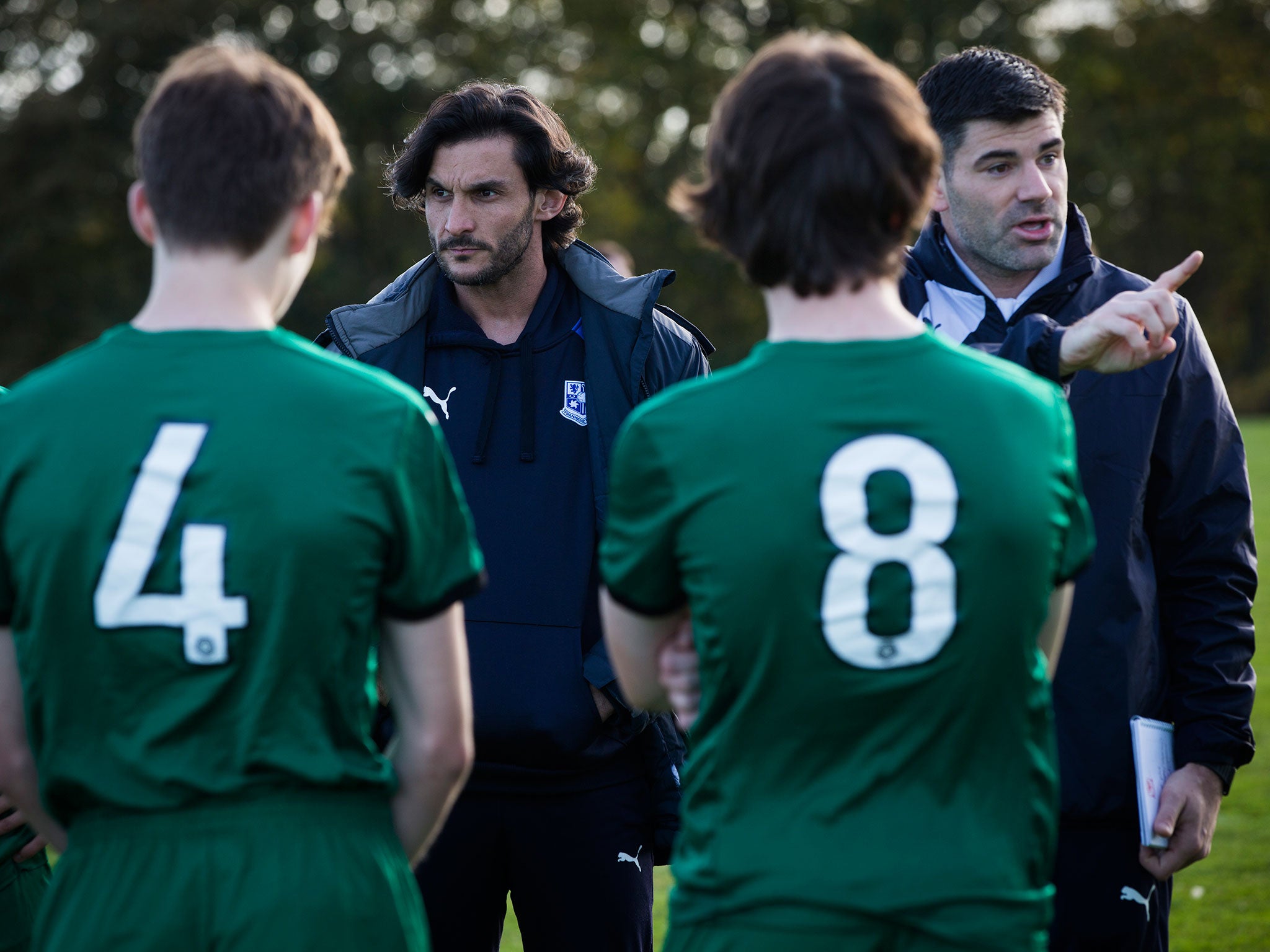
Kinsella of all people appreciates the need for a fall-back option. Of his Liverpool Schoolboys team, six went to prison and only two had sustained careers in the game. Looking back at his own mistakes, Kinsella admits: “I was an idiot.” He did not so much burn his bridges as blow them up. “I was at Liverpool at first but ended up getting banned for two years. I shouldn’t have played for my Sunday league team but I did and I ended up attacking a referee. Steve Heighway kicked me out of the door.”
The only way it was going to stop was either getting killed or going to jail
That Sunday team was Byrom FC, which Jamie Carragher – an old acquaintance – also turned out for.
Kinsella’s time at Tranmere in the mid-90s, meanwhile, ended after another self-destructive act. “I’d started off brilliantly and spent pre-season with the first team,” he remembers. “Then I had a mix-up with the assistant manager. It was a physical confrontation. It was my fault and I got told to apologise and wouldn’t. What happens then in footy is other clubs ring people up and ask, ‘What’s he like?’. It kills you.”
As the door slammed shut on a career in football, he stepped through another – into the world of dealing drugs. That, and prisons, would be his life for the next decade and a half. “I always think, ‘Why?’. Obviously it is money and it grows into something else. I’ve heard all this ‘I was bullied into it’. But no one’s bullied into it. It’s a choice. I’ve made every choice. Then it becomes your life.”
Kinsella saw the inside of jail cells in Spain and the Netherlands during his four stints in prison. “The only way it was going to stop was either getting killed or going to jail. They were the two options at that time.”
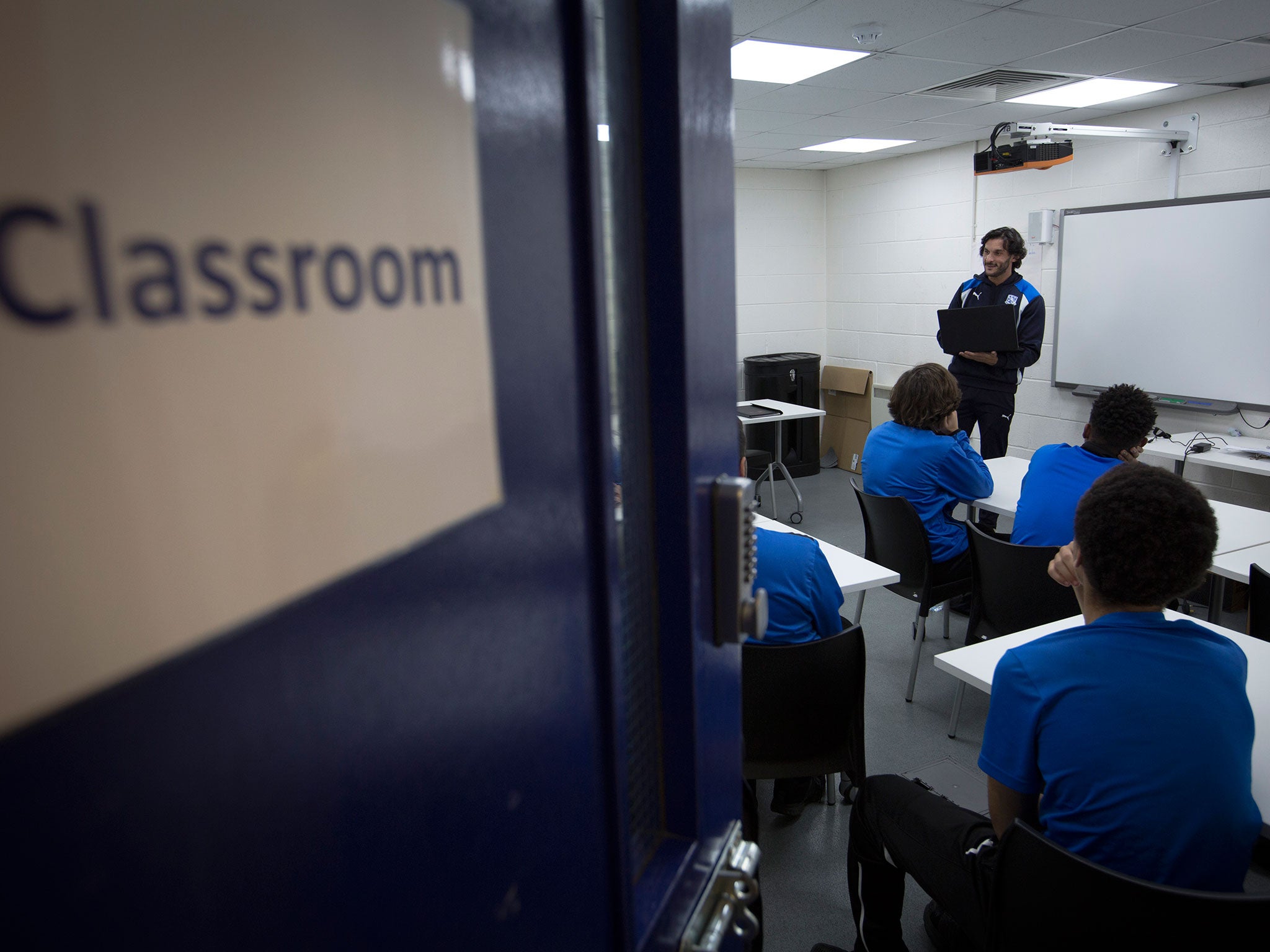
Eventually, he arrived at that moment of clarity in Rye Hill Prison. It sparked a thirst for education. He studied sports psychology and did an Open University introduction to sport, fitness and management course. When he came out of prison in 2012, he set up a programme called Onside to help others avoid his mistakes.
“I was thinking I want to help lads play football and maybe get a chance,” he says. On his mobile phone is a photo of a scruffy field in the Vauxhall area of Liverpool where he and Gerard, his brother, began working with youngsters. “That is what I started on. That’s by where I was brought up – just a piece of grass.”
Later in the day, Kinsella drives me to a bigger patch of green – Tranmere’s Raby training ground. It is Wednesday afternoon and the development squad have a friendly match against the youth team of League of Wales side Connah’s Quay.
Kinsella points out Dylan Vassallo, a 17-year-old attacking midfielder. “He was playing on the street before coming to us. He was nowhere. But he scored a goal in a pre-season game and since then has been training with the first team.”
Both Kinsella and Palios are keen to play down the football prospects of a group of players ranked below the club’s academy youngsters in the pecking order. Yet they are certainly gaining good habits. Kinsella beckons to him three substitutes kitted out in their own training tops. “Come here. Go and throw a Tranmere tracksuit top on.”
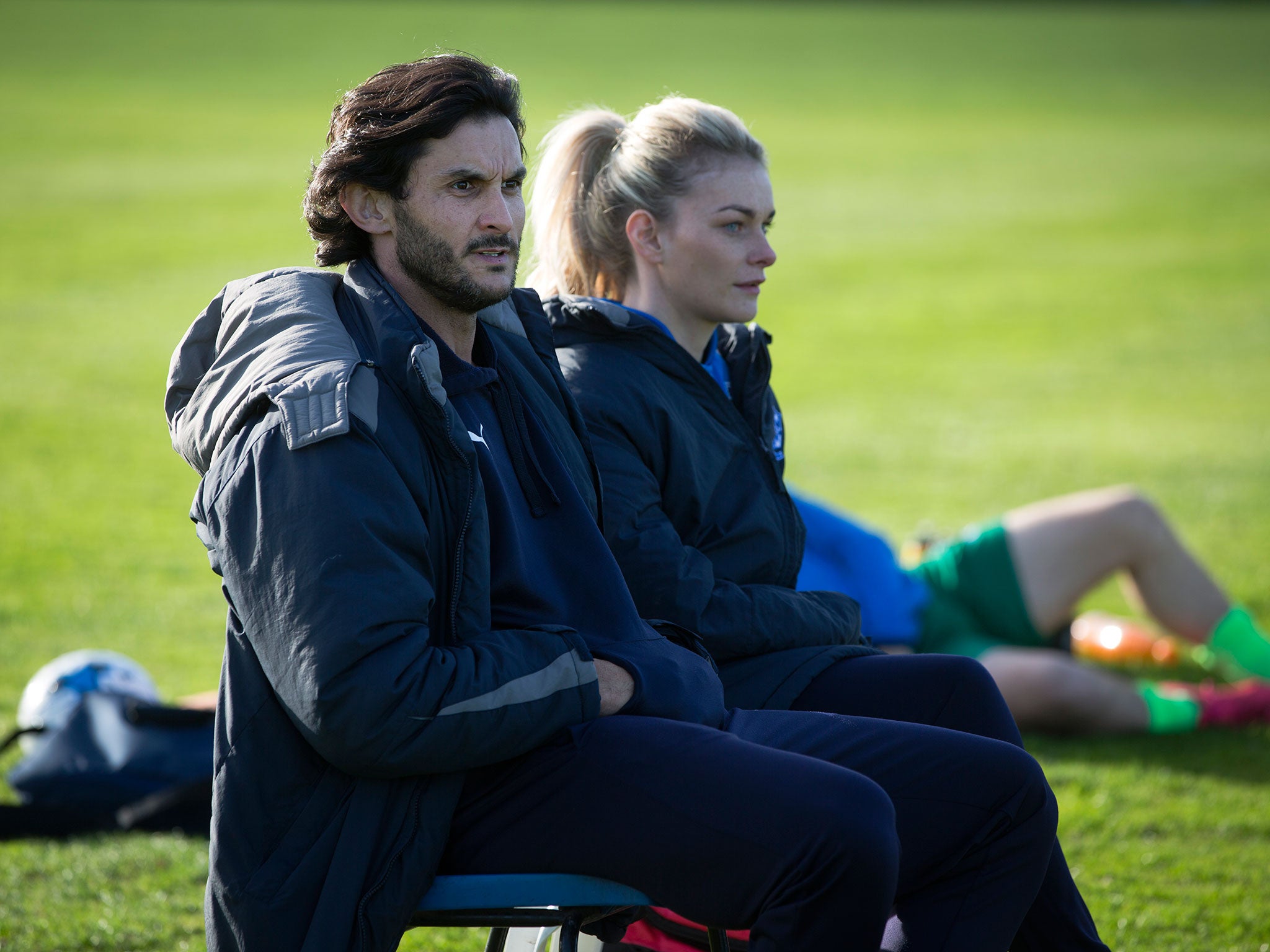
He reflects it is not always easy telling teenagers what to do. “It’s hard to get through to them,” he says. “I had loads of people telling me but I didn’t listen. I thought I knew more. I don’t think you think straight as a young lad.”
It is even more difficult, as he knows well, to get youngsters to think straight once they have strayed off course. “It’s hard to stop that cycle,” he says. “It’s a life you are in. Mark Palios loves the fact of being able to help. He has seen me. I’ve changed.”
It is not only Palios. Micky Mellon, the Tranmere manager, wants him to speak to his first-team players. “He is big on psychology,” explains Kinsella, who has also done some scouting work for the club.
“I just wanted to be involved in football. I should have been involved in football from a young age. That should have been my life. It’s hard. I’ve done the hard part, I hope. I’m here now and what more can you ask for – for someone like Mark to have belief in you? If I can’t do anything with this, I’m a fool.”
Join our commenting forum
Join thought-provoking conversations, follow other Independent readers and see their replies
Comments